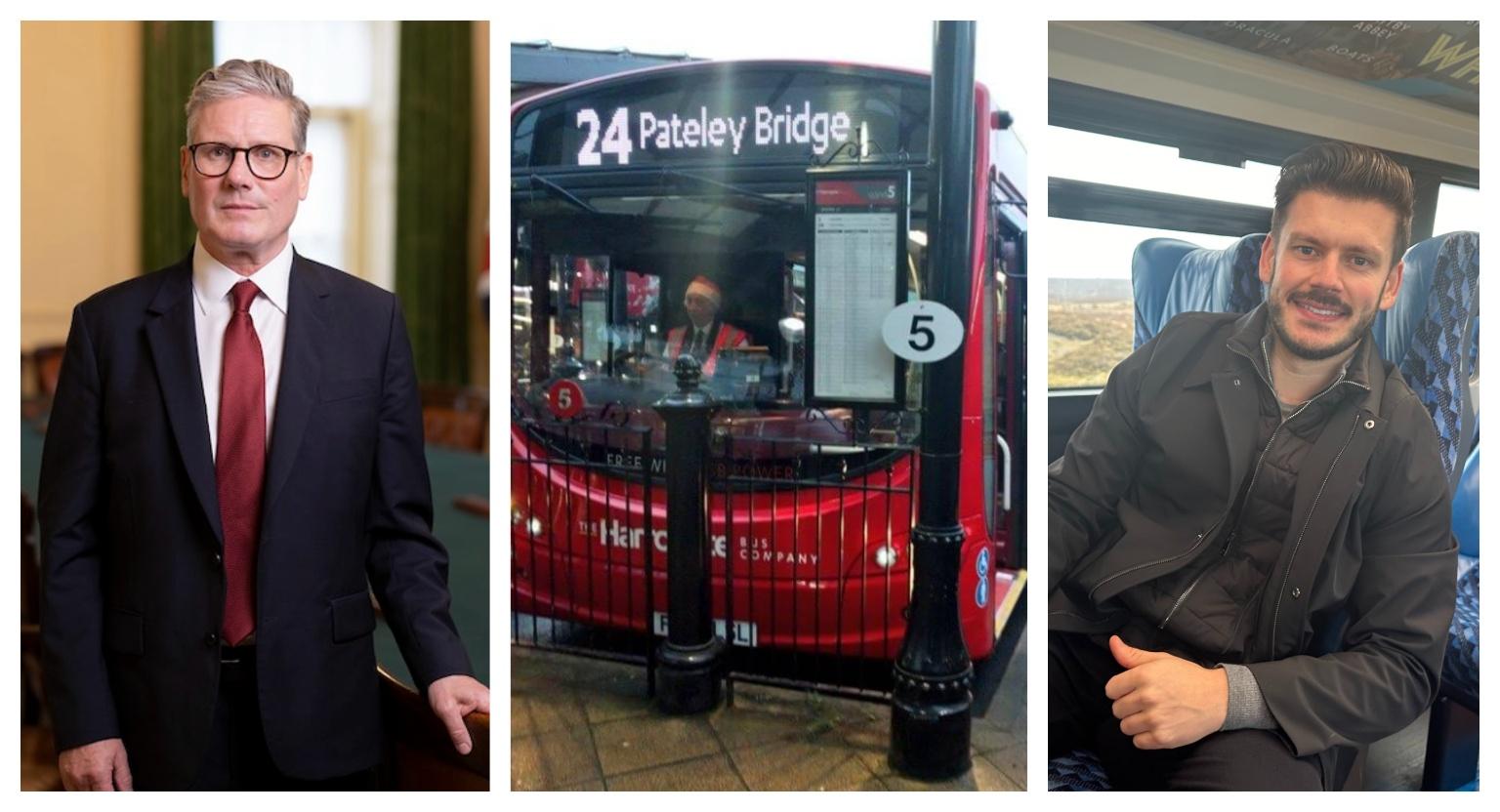Subscribe to trusted local news
If you are accessing this story via Facebook but you are a subscriber then you will be unable to access the story. Facebook wants you to stay and read in the app and your login details are not shared with Facebook. If you experience problems with accessing the news but have subscribed, please contact subscriptions@thestrayferret.co.uk. In a time of both misinformation and too much information, quality journalism is more crucial than ever. By subscribing, you can help us get the story right.
- Subscription costs less than £1 a week with an annual plan.
Already a subscriber? Log in here.
28
Oct 2024
Tory transport chief's warning of bus 'catastrophe' averted

Tory transport chief’s Keane Duncan’s warning of a looming “catastrophe” for local bus services was averted today when Prime Minister Sir Keir Starmer announced the national bus fare cap will continue.
There had been speculation Chancellor Rachel Reeves was going to abolish the cap in this week’s Budget.
Cllr Duncan, the Conservative executive member for highways at North Yorkshire Council, warned last week this could have “catastrophic consequences” for rural routes and threaten a third of services.
There has been particular concern in the Harrogate district about the 24 bus that links Pateley Bridge and Harrogate.
But in a speech in Birmingham today, Sir Keir said today the cap would be extended until the end of next year — although the price would increase from £2 to £3 and the cap would end altogether then.
The Prime Minister said:
I do know that this matters, particularly in rural buses. The Tories only funded the £2 fare cap until the end of 2024, and therefore that is the end of the funding in relation to the £2 bus fare.
Cllr Duncan, who last week it was “only right that any end to the scheme is done in a phased and well-managed way”, today accused Sir Keir of caving in to pressure.
He said:
Keir Starmer has given in, but only after pleas from rural communities like ours not to scrap the cap. It’s wrong that we have had to fight so hard to save an initiative that is particularly essential for bus services in communities like ours.
The saving this will generate feels like penny pinching for rural areas, when the major cities have seen billions invested there. And while the cap will continue, it will increase by 50%, another hit on working people. The additional cost for a typical worker commuting daily will be around £500.
Tom Gordon, the Liberal Democrat MP for Harrogate and Knaresborough, described today's announcement as "a huge blow to all those who were already struggling with the cost of living" and amounted to a "bus tax on working people".
Mr Gordon added:
It will come as a hammer blow to many commuters across the country, especially those in rural communities, and it will be felt in town centres and high streets too. The government ought to be encouraging public transport use if it is serious about combating the climate crisis. This policy will lead to more cars on our already crowded roads, something our infrastructure cannot afford in the area.
1